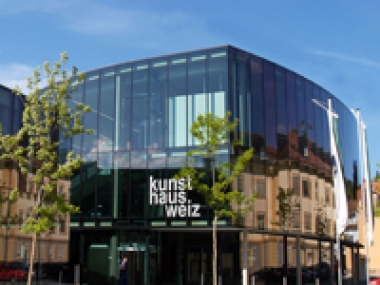'It Should Be a Powerful Kick-Start for Further Activities'
Edited on
09 October 2017As nine URBACT projects reach their final conferences, one project coordinator, Barbara Kulmer, of Active Travel Network in Weiz, describes why the end of a project is only the beginning. In a separate article, the other eight spotlight their events in a final-conferences round-up.

What is your URBACT project about and which cities are involved?
Barbara Kulmer: The project is designed to decrease traffic congestion mainly caused by cars, often with single occupancy, in small and medium-sized towns. The main aim is to encourage residents to walk or cycle more in their everyday lives. There is great potential for getting people to shift from driving to walking or cycling in small and medium-sized cities as about half of existing car journeys are less than 5km.
The project includes eight partners – seven cities and one academic partner – Weiz (Austria), Novara (Italy), Riccione (Italy), Serres (Greece), Sebes (Romania), Norderstedt (Germany), Skanderborg (Denmark), Ljutomer (Slovenia), and the University of Graz (Austria). Where and when will it be, and who will be attending?
Where and when will it be, and who will be attending?
The final conference will take place at the Kunsthaus in Weiz on November 6. The participants will be representatives of different municipalities, citizens, members of the ULSGs, stakeholders, traffic experts, key decision-makers at regional, national and European level, and also young people from a local technical college.
What will be special about the format and programme of your particular final conference?
The keynote speakers will talk about the need to increase non-motorised traffic in cities. In special “walk shops” on the conference premises there will be information about the traffic situation in Weiz: the problems we have solved and those we still have to tackle. This will lead to a useful exchange of ideas and knowledge among the project partners. There will be a walking tour of the city as well as a visit by bicycle.
All the partners will present their own ![]() VD2How_to_produce_a_LAP.pdf describing the steps they will take to import the good practices they first observed other regions, and the local challenges involved in implementing them.
VD2How_to_produce_a_LAP.pdf describing the steps they will take to import the good practices they first observed other regions, and the local challenges involved in implementing them.
What are your expectations for this event?
We expect the final conference to have a big motivating impact on all the project partners. And we hope that they will all carry on lobbying for non-motorised traffic in the years to come.
What do you think will be the long-term legacy of this project?
First of all, the international experience will lead to a better understanding of traffic problems in different European countries. Secondly, all project partners will be competent in promoting non-motorised traffic and measures. Thirdly, the Local Action Plans designed by each project partner will leave a permanent legacy when these plans are put into practice.
The mobility management approach has been strengthened, proving that it isn't always necessary to spend a lot of money to tackle traffic problems in our cities. Changing people’s attitude towards cars in the long run is the only meaningful measure that municipalities can carry out.
Read more:
- Active Travel Network – URBACT Website
- Active Travel Network is holding its final conference – URBACT Website
- Active Travel Network – Final Conference Agenda – URBACT website
Submitted by admin on
